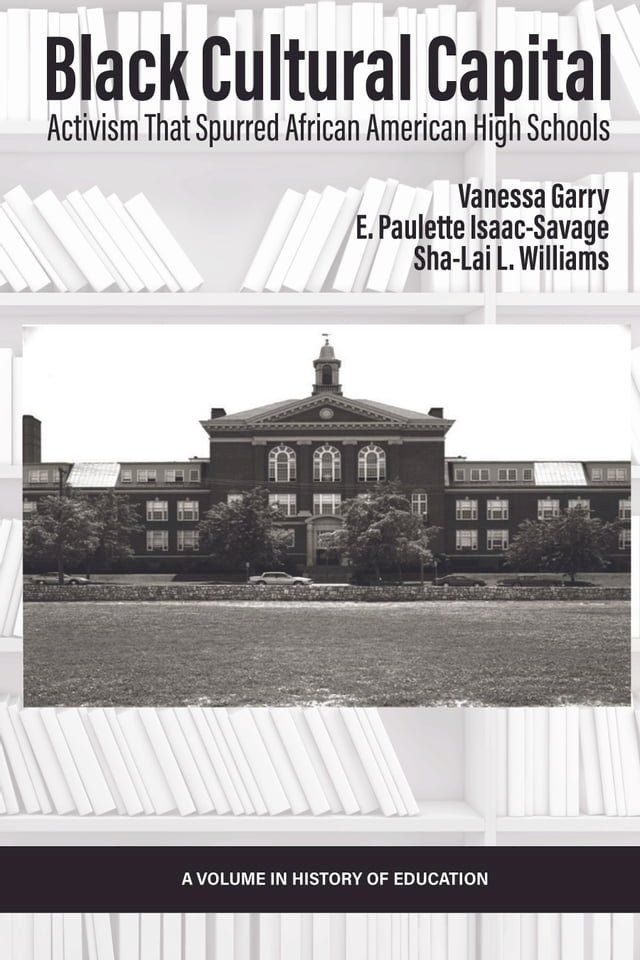作者: | |
ISBN: | 9798887303949 |
出版社: | |
出版日期: | 2023/09/01 |
內文簡介
In antebellum America, Black children, even those of tax-paying Blacks in most states could not attend White public schools or in some states any schools. Nevertheless, with the signing of the Emancipation Proclamation in 1863, Blacks assumed they would receive all inalienable rights granted to them as American freedmen. For most, the right to a proper public education for their children was paramount. Nevertheless, White educators often neglected or poorly implemented Black schools, especially secondary schools. With their reluctance to provide schools for Blacks, African American communities organized and petitioned school districts to develop Black schools on par with those for Whites. In the book, Black Cultural Capital: Activism that Spurred African American High Schools, authors describe the role of the Black community in the development of high schools. Their narratives reveal White educators’ unwillingness to implement state laws requiring the education of all children. Their lack of engagement galvanized Blacks to petition boards to adhere to the law. Additionally, they forced school districts to hire Black teachers and provide facilities for Black children equal to those of White children. The fruits of their labor enabled Black children to attend suitable facilities, as well as learn from Black teachers who attended outstanding White and Black colleges and universities. Furthermore, stories of the high schools illustrate how communities sprouted up around them during their heydays as well as, for some, their demise as laws and court decisions eradicated Jim Crow and enabled all Americans to live and learn where they desired. ENDORSEMENTS: "Throughout America, the freedom dreams of Black people and the intellectual currents that guided them were first unleashed within one-room schoolhouses, dilapidated shacks, and church basements that were converted into laboratories of discovery and dissent. In short Black spaces matter and have always mattered in the struggle for Black liberation. The authors of Black Cultural Capital have delivered one of the most comprehensive collection of essays to date that highlight the monumental legacy and rich history of America’s first Black high schools. Utilizing a vast array of sources, the authors have created an intimate portrait of the struggle to carve out historic spaces that educated and affirmed Black youth while simultaneously countering pernicious systems of white supremacy that sought to undermine them at every step. This volume of essays is a must have for any serious scholar or student of the Black freedom struggle in America." — Jelani M. Favors, North Carolina A&T State University "This is a long-awaited, quintessential contribution to our still-incomplete knowledge and understanding of the unique but intertwined histories of Black education and secondary schools in the United States. The narratives are incisive, enlightening, and inspiring. A welcome advancement to the historical foundations of education." — Tondra L. Loder-Jackson, The University of Alabama at Birmingham "At a time when there is a deservingly greater appreciation for historically Black colleges and universities (HBCUs), we must also remember that K-12 Black high schools played a pivotal role in anchoring communities and creating a sense of place and freedom for Black people. In this edited book, Black Cultural Capital: Activism that Spurred African American High Schools, Drs. Vanessa B. Garry, E. Paulette Isaac-Savage, and Sha-Lai L. Williams produced a timely and much-needed book about the significant role Black high schools have historically--and continue to play--in Black communities and the Black freedom struggle. With detailed historical case studies of Black high schools throughout the United States, the various authors illuminate how these schools served as pillars in Black communities." — Jerome Morris, The University of Missouri - St. Louis
Kobo 電子書 購買注意事項如下:
(一)如果您是第一次購買Kobo電子書的顧客,請依以下兩種購買方式擇一進行綁定:
1.PChome 24h 網頁版(https://24h.pchome.com.tw/):結帳後至顧客中心,確認訂單狀態,若為確認中,請稍候五分鐘,待訂單狀態變為訂單成立後,點選明細,在訂單資訊中點選〔內容〕,在彈跳視窗後點選〔去兌換〕,即可前往Kobo官網執行綁定及登入流程。
我的訂單/顧客中心 >訂單查詢> 訂單編號> 點選明細 > 訂單資訊 點選〔內容〕>彈跳視窗 點選〔去兌換〕即可前往Kobo官網執行綁定及登入流程。
2.PChome APP版:結帳後至顧客中心,確認訂單狀態,若為確認中,請稍候五分鐘,待訂單狀態變為訂單成立後,點選明細,在訂單資訊中點選[序號/軟體下載],並在彈跳視窗出現後點選〔下載連結〕,即可前往Kobo官網執行綁定及登入流程。
顧客中心> 訂單查詢> 訂單編號> 點選明細 > 訂單資訊 點選 [序號/軟體下載] >彈跳視窗 點選〔下載連結〕即可前往Kobo官網執行綁定及登入流程。
*進入Kobo官網後的綁定流程請參考如下:
(使用Kobo主帳號 登入/註冊)
1. 當您在PChome 24h 網頁版(https://24h.pchome.com.tw/)/PChome APP版,購買確認後,並依步驟跳轉到Kobo官網時,下滑點選〔更多登錄選項〕,由〔PChome〕後點選進入,同意後登入,並可以註冊Kobo主帳號進行綁定,完成後,所購買的書籍即會出現在Kobo APP/Kobo 閱讀器/Kobo官網內的我的書籍。(使用快速登入:FACEBOOK、GOOGLE、APPLE帳號登入)
2. 當您在PChome 24h 網頁版(https://24h.pchome.com.tw/)/PChome APP版,購買確認後,並依指示跳轉到Kobo官網時,點選〔FACEBOOK、GOOGLE、APPLE帳號登入〕擇一登入,同意後登入,並可以註冊Kobo主帳號進行綁定,完成後,所購買的書籍即會出現在Kobo APP/Kobo 閱讀器/Kobo官網內的我的書籍。(二)如果您是已經完成PChome與Kobo帳號綁定程序,非第一次購買Kobo電子書的顧客
1.PChome 24h 網頁版(https://24h.pchome.com.tw/):結帳後至顧客中心,確認訂單狀態,若為確認中,請稍候五分鐘,待訂單狀態變為訂單成立後,點選明細,在訂單資訊中點選〔內容〕,在彈跳視窗後點選〔去兌換〕,所購買的書籍即會出現在Kobo APP/Kobo 閱讀器/Kobo官網內的我的書籍。
2.PChome APP版:結帳後至顧客中心,確認訂單狀態,若為確認中,請稍候五分鐘,待訂單狀態變為訂單成立後,點選明細,在訂單資訊中點選[序號/軟體下載],並在彈跳視窗出現後點選〔下載連結〕,所購買的書籍即會出現在Kobo APP/Kobo 閱讀器/Kobo官網內的我的書籍。
- 退換貨:依樂天Kobo官方規範為準
- 僅能由 閱讀器以外 的裝置做會員帳號綁定
- 請注意,帳號綁定後:
* Kobo會更新您的帳戶詳細資料
* 您將能在Kobo APP/Kobo 閱讀器/Kobo官網中查看所有書籍
* 帳號綁定後,您可以使用任一帳戶登入 Kobo
* 完成第一次串接時,請登出所有裝置,約等待5分鐘後再登入即可查看您的書籍
* 重新登入後,原帳戶中的書籍如有畫線註記和收藏將有遺失的可能。登出前,請務必先行拍照備份
* 若您有任何相關疑問請至Kobo官方網站 https://help.kobo.com/hc/zh-tw 並到頁面最下方點選“聯繫我們”


